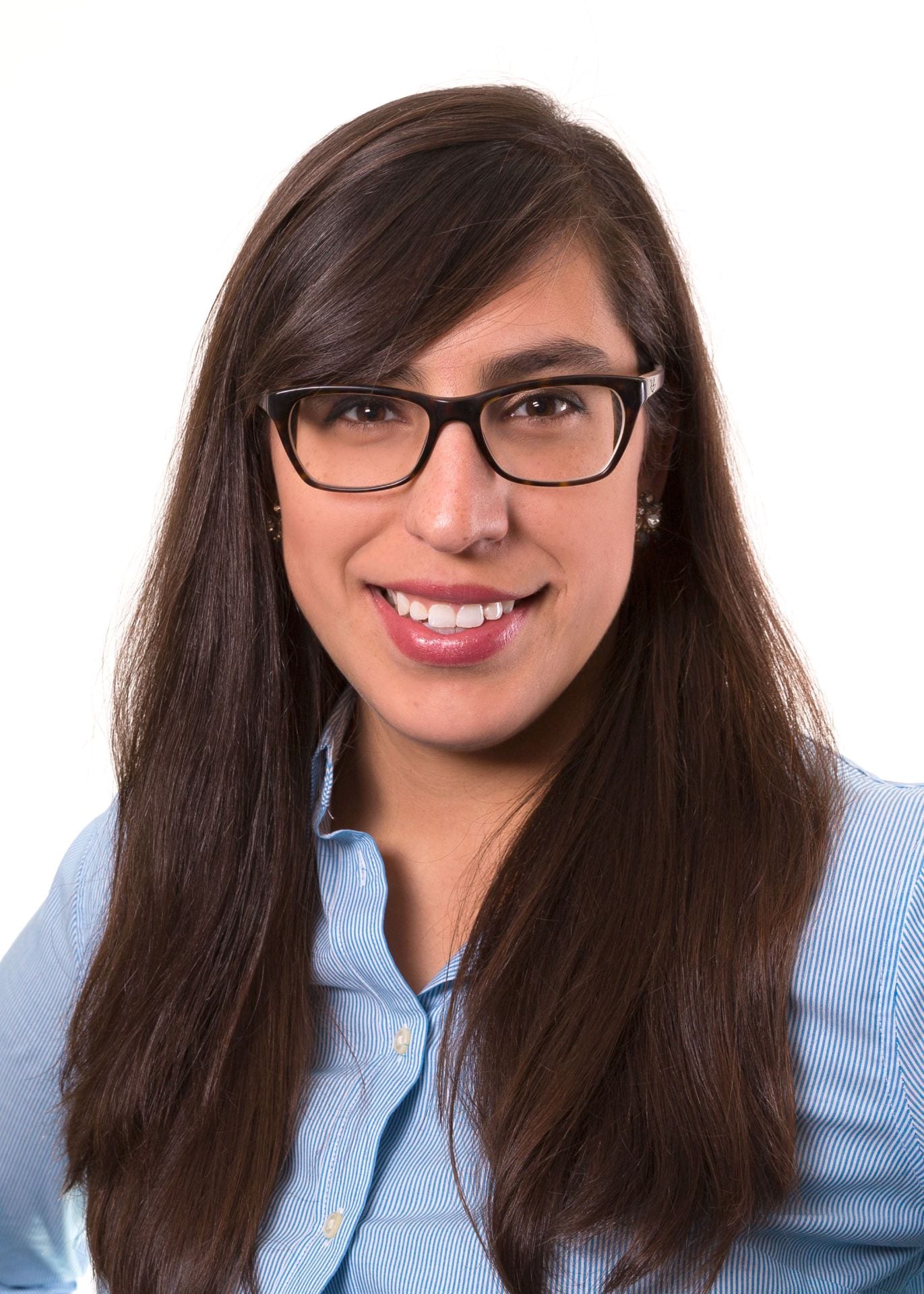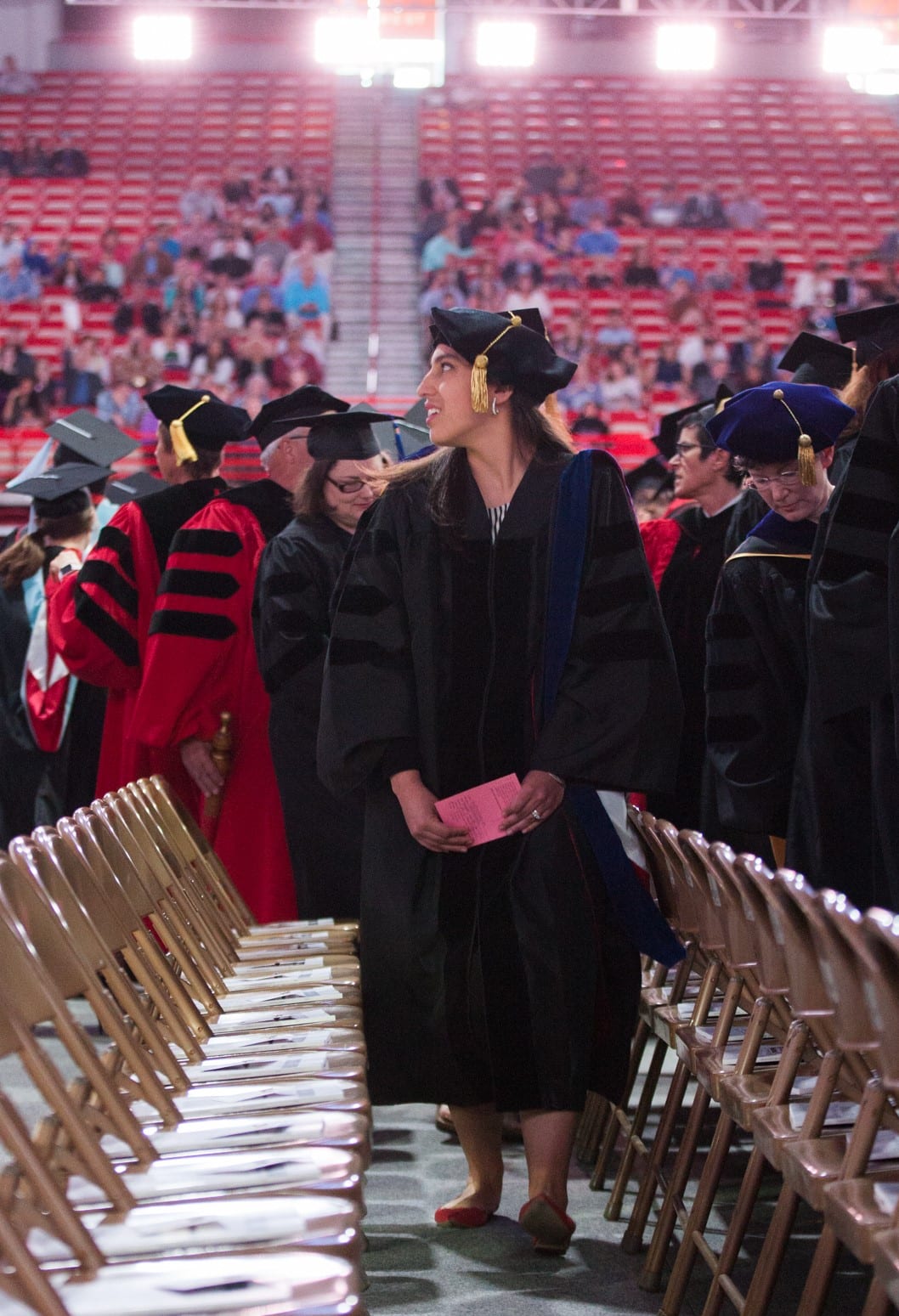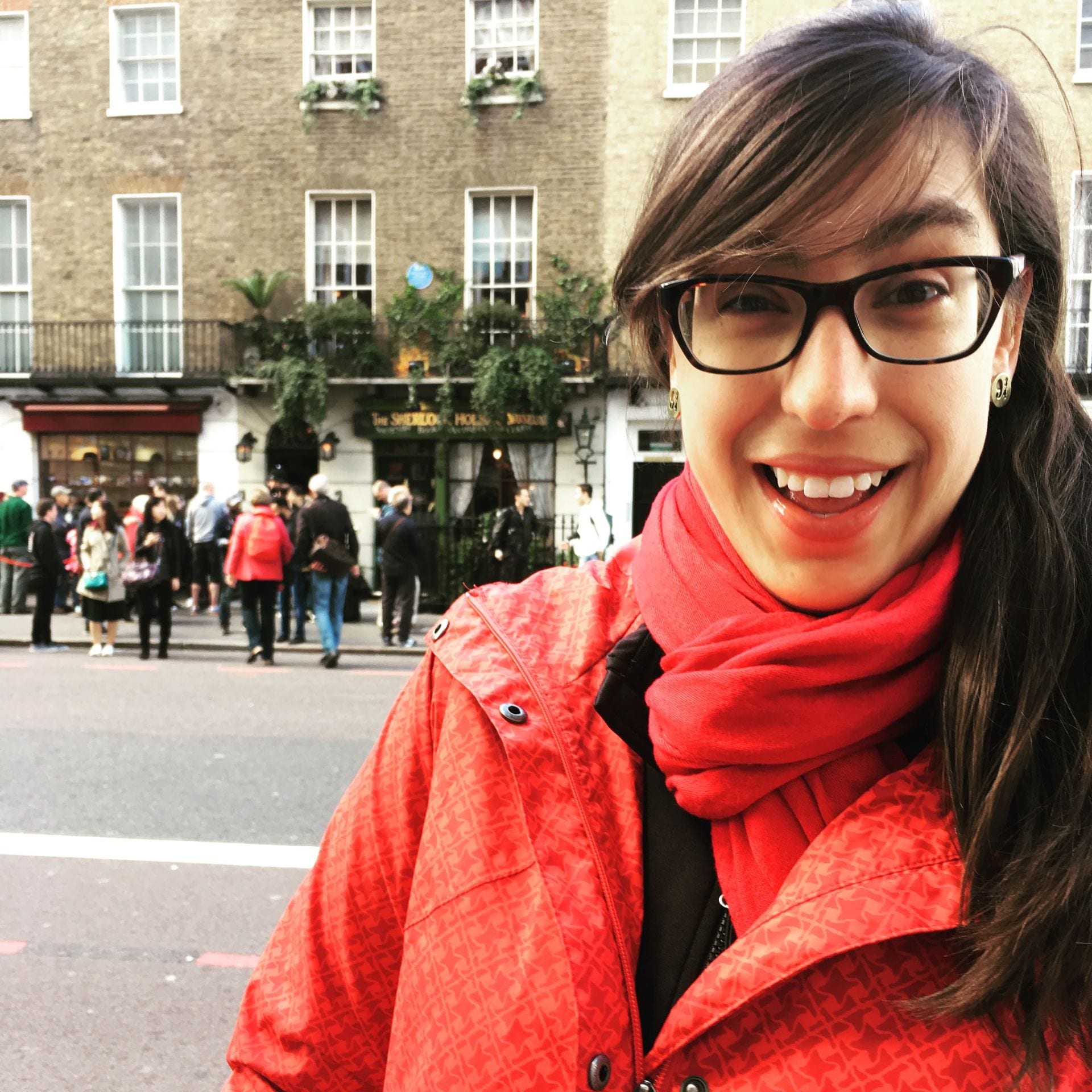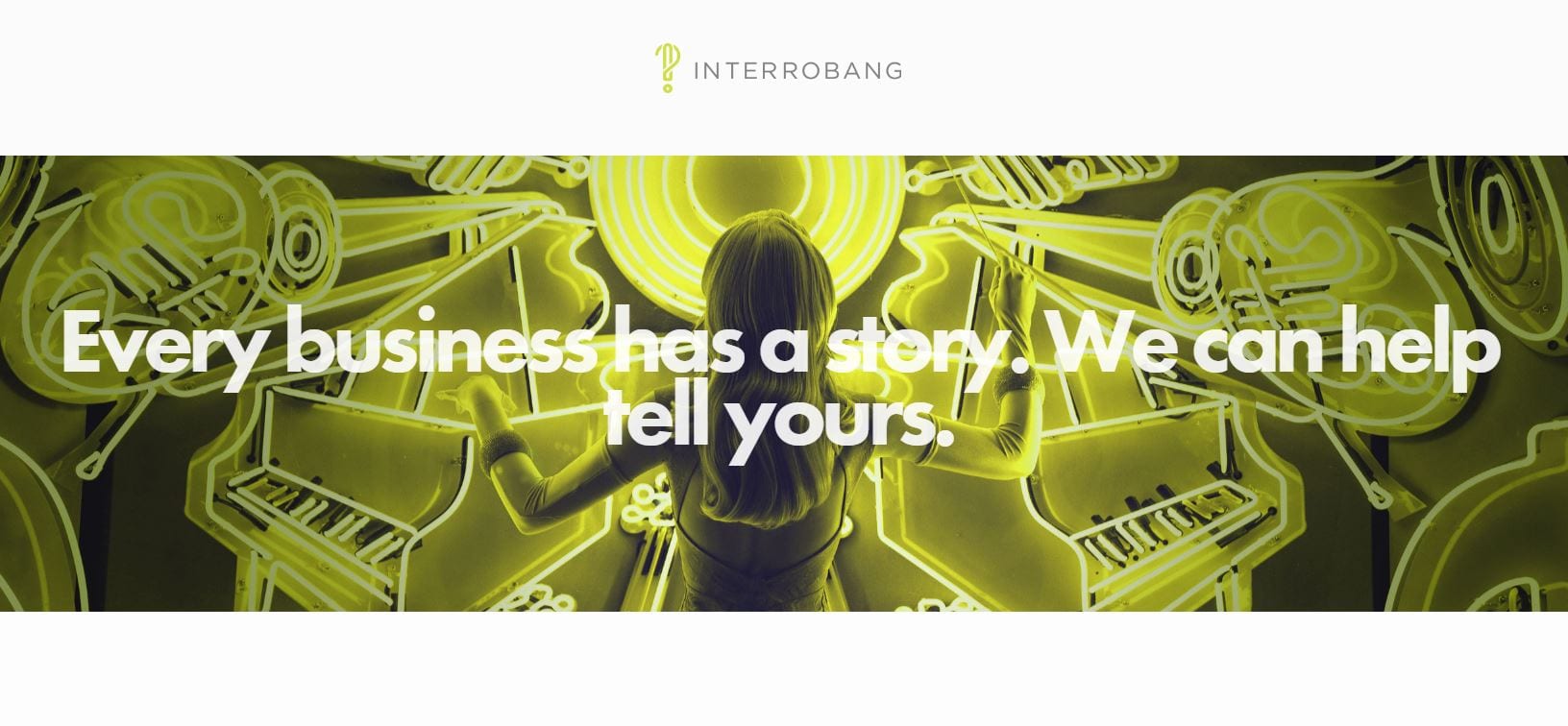INTERVIEW WITH ASHLEY ROBINSON (PH.D. ’16), FOUNDER/LEAD STORYTELLER OF INTERROBANG

(Photo by John Robinson)
QUESTION 1: You graduated with your Ph.D. in English in 2016 after defending your dissertation, wonderfully titled “Cowboys and Victorians: The American West in English Victorian Literature.” However, instead of riding off into the sunset toward a tenure-track position, you galloped full-speed toward an alt-ac career, starting up your own brand storytelling company, Interrobang (https://www.weareinterrobang.com/)! What gave you the idea (and courage) to pursue this less traditional professional path?
Here’s the short answer: there just wasn’t job availability in the academic market when I graduated. (Shocking, I know!)
The longer answer is more complicated. Right after I finished my comprehensive exams, my dissertation director left for another institution. It put me at a crossroads: I had to decide whether I wanted to reconstruct my committee or cut my losses and leave the program. It prompted me to research my options both inside and outside of the academy. I started by taking a few weeks to really think about what I wanted my life to look like in ten years. Once I had a rough idea there, I began researching both the academic and traditional job markets. It became apparent that the professoriate wasn’t the only—or even the best—way for me to reach my goals. So I ended up at a split decision: I was far enough along in the Ph.D. program that finishing my degree made sense, but I wasn’t interested in fighting for a tenure-track position. Thus, my situation became, well, much more practical. I needed to figure out how I could write a great dissertation and graduate while simultaneously building a professional work portfolio.
And there you have it! Super easy, right? (Just kidding!) Actually, the whole process was incredibly difficult in terms of emotional and intellectual labor. But having said that, going alt-ac never felt like a second choice to me. I came from a background in communications and had freelanced while teaching, so I had a decent sense of how my skills could translate into the mainstream marketplace. In fact, if you’re reading this and thinking about leaving the academy, stop thinking of an alt-ac career as a fall-back option. It isn’t. Moving into the private sector is as valid, challenging, and rewarding a career path as the professoriate. But you have to commit to your decision. Think of it this way: would you marry someone if they still had pictures of their ex plastered all over their bedroom walls? Of course not! The same holds true for going alt-ac. If you’re always looking over your shoulder at the ivory tower, you won’t be as successful—or happy—as you could be. And at the end of the day, going alt-ac doesn’t mean you can never return to higher education. Adjunct positions were designed with professionals in mind; you can always teach a class or two further down the road.

Graduating from the University of Arkansas, May 2016
(Photo by UA Staff Photographer)
QUESTION 2: What would you say are the two most important skills developed in graduate school that you’ve applied to your process of setting up and running your own business? What technology skill(s) would you recommend all English graduate students try to master before going on the alt-ac job market (if they choose that route)?
This is a great question! It’s hard to narrow my answer down to two skills—there’s a lot you learn during your Ph.D. that’s surprisingly helpful when it comes to entrepreneurship. But I’d say the two most critical skills I picked up were writing flexibility and critical thinking.
Let’s start with writing. The ability to write quickly, accurately, clearly, and in different voices and styles is hugely marketable. Companies usually have multiple communication channels, all of which require different tones and strategies to be effective. My clients don’t have to worry about whether I can handle such a diverse workload—my degree pretty much guarantees that I can tackle whatever they throw at me. And when you can do lots of things well, it makes you a more valuable hire!
The same holds true for critical thinking skills. Whether it’s streamlining internal procedures or selling a specific brand of diapers to parents, business propositions hinge on identifying problems and figuring out creative, executable ways to solve them. Not only that, you have to articulate that solution to clients to sell them on the idea. And guess what? That’s what English majors are trained to do! You practice those skills every day, whether you realize it or not. For instance, when you’re analysing a novel, you can zoom out to look at the work as a whole, do a close reading, or apply any of a million theoretical lenses to the text. Being able to open a critical toolbox and pick the right tactic for the job is a valuable (and transferable!) skill. In terms of my work, my ability to “read” a problem multiple ways, draft potential solutions, then build a body of research around them has been invaluable.
When it comes to technology, English majors have a reputation for being luddites. (I mean…just think about how often we wax poetic about paper versus electronic books, for goodness’s sake.) But the truth of the matter is that businesses today expect you to have a high level of technological competency. This is especially true if you want to get into any sort of business writing. At minimum, you should be familiar with every major social media platform, how to post to it, and what good posts look like. If you haven’t messed around with collaborative writing software like GoogleDocs, get on that, too. I also think knowing your way around WordPress can be extremely helpful, especially if you’re interested in blog writing.
In fact, if you’re reading this and thinking about leaving the academy, stop thinking of an alt-ac career as a fall-back option. It isn’t. Moving into the private sector is as valid, challenging, and rewarding a career path as the professoriate. But you have to commit to your decision. Think of it this way: would you marry someone if they still had pictures of their ex plastered all over their bedroom walls? Of course not!
QUESTION 3: What has been your biggest challenge as a small business owner? What’s been the biggest perk?
Um…what hasn’t been a challenge?! I didn’t have any real business experience before I started Interrobang, so every day has been a learning experience. I’d say the biggest challenge has been adjusting to the idea that there’s no playbook for starting a successful business. It’s such a big change from graduate school, where you’re given a specific course of study. From coursework to dissertation length, you know exactly what benchmarks you need to hit and when, and there’s no question about what constitutes success or failure. But starting Interrobang didn’t come with that sort of road map. (It does come with a stack of tax documents, though!) Ultimately, it’s up to me to figure out how to run my business, land clients, and build a revenue stream. That can be a huge challenge sometimes, especially when there are multiple solutions to a problem and I have to pick one path forward.
Having said that, I’ve found there are two huge perks to owning my own business. First, it’s as intellectually challenging as anything I tackled in grad school. I knew I’d need a career that was rigorous and, well…not boring. Boy, did I find one! I do something new and interesting every single day. I’m not just a scriptwriter or a proofreader; I can take on any project that aligns with Interrobang’s brand and run with it. Second, Interrobang gives me the chance to create my dream job. Interrobang lets me combine my passion for storytelling, communication, education, and leadership into a role that makes it fun to get out of bed in the morning. (My boss also lets me keep a fairly flexible schedule, which doesn’t hurt.) But my ultimate goal is to grow Interrobang into a progressive creative company that supports a diverse workforce with generous wages, flexible scheduling, inclusive policies, and meaningful work. In other words, I’ve got big plans! I’ll be the first to admit that owning a small business isn’t for everyone, but much to my own surprise, it’s been a great fit for me.

Traveling in England, Spring 2017
(Photo by John Robinson)
QUESTION 4: You’ve continued to write scholarly articles and keep your hand in teaching by offering courses through the Osher Lifelong Learning Institute (OLLI)–a course on Dracula last year and another course on Robert Louis Stevenson this past October. Literary scholarship and pedagogy aren’t required parts of your current job, so why have you continued to engage in these activities on the side?
When I first started thinking about leaving the academy, I spent a lot of time thinking about what I’d miss. I loved teaching, and even though I think it’s silly that you don’t get paid for publishing journal articles, I also enjoyed critical analysis. I mean, you don’t get a Ph.D. because you’re lukewarm about that kind of stuff! During one of my particularly mopey moments, my husband suggested that I just…take the things I loved with me. I’m sure I looked at him like he was crazy, but you know what? He was right. I mean, I was already doubling down on blazing my own trail, so I figured I could do whatever else I wanted at that point. So now scholarship is my hobby, not my job. I can play around with it as much or as little as I want, and I teach OLLI classes twice a year to get my classroom fix. Basically, it’s all the fun parts of my old job without the stress of grading or getting published. And you never know…maybe one of those things could lead to a new business opportunity down the line!

